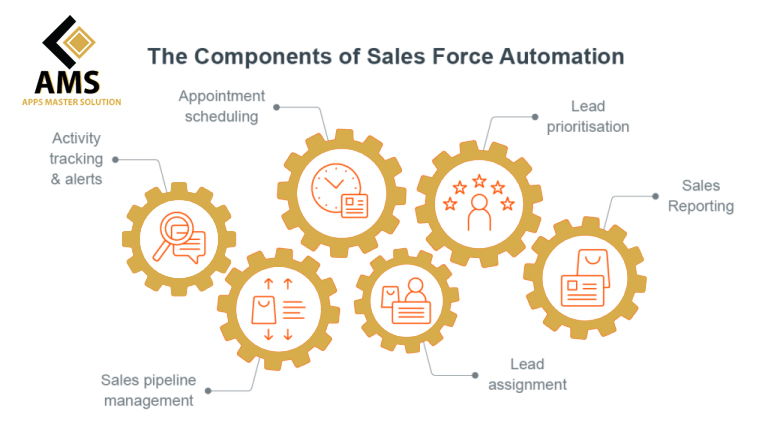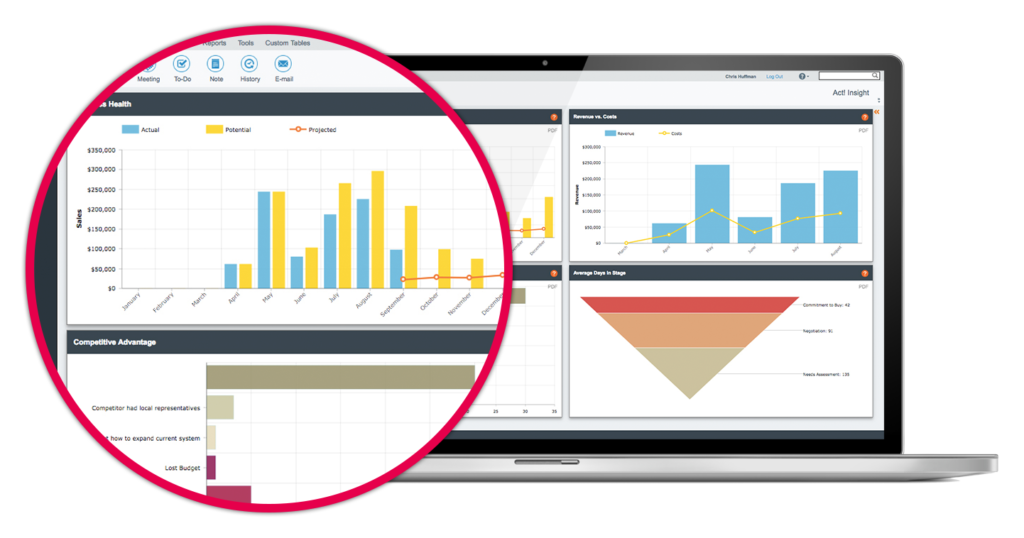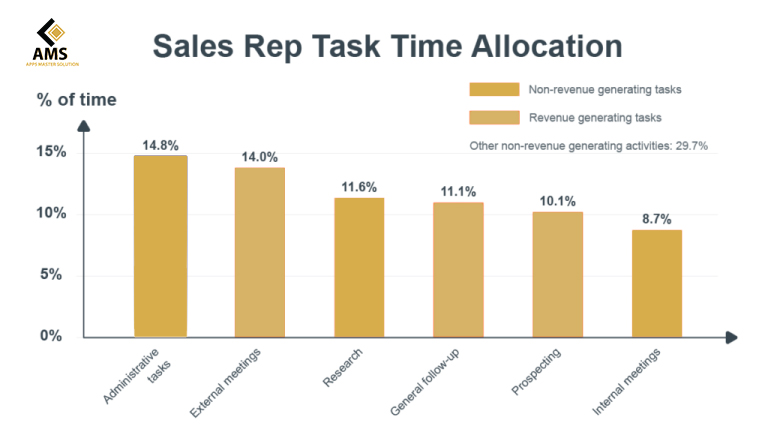
Unlock the Potential of Your Sales Team with Sales Force Automation Discover how sales force automation tools can help your sales team become more productive and efficient in closing deals. In this article, we’ll explore the benefits of sales force automation and how it can transform your sales team’s performance.
What is Sales Force Automation?
Sales force automation (SFA) is a technology solution that automates key aspects of the sales process, enabling sales teams to work more efficiently and effectively. By automating routine administrative tasks, SFA empowers sales reps to devote more time to selling, customer engagement, and relationship-building.
Sales force automation (SFA) software automates tasks based on specific inputs. For instance, leads can be sent follow-up emails based on a pre-designed template if they don’t respond to an initial email within a certain timeframe.
Alternatively, the software can be configured to trigger multiple tasks with a single action taken by a sales team member. For example, tasks can be automatically assigned to team members whenever a manager moves a prospect through the sales pipeline.
SFA software also often includes reporting and analytics tools, making it easier for sales managers to track key metrics, such as sales team performance or predicted revenue over a specific period.
The Purpose of Sales Force Automation
The ultimate goal of sales force automation is to enable companies to sell more products. It achieves this in three main ways:
1. Allowing sales teams to focus on high-priority tasks: By automating administrative tasks, sales force automation enables reps to spend more time on activities that drive sales.
2. Streamlining the sales process: Sales force automation makes the sales process more efficient, leading to increased sales.
3. Providing insights into sales process effectiveness: Reporting and analytics tools in sales force automation software enable sales managers to identify what’s working and make adjustments to optimize sales strategies.
Sales force automation software is not meant to replace the sales department, but rather to complement the work of good sales teams and help them implement effective strategies.”
Start Creating More Meaningful Relationships With Apps Master!

Components of Sales Force Automation
1. Activity Tracking and Alerts: Tracks customer interactions and alerts sales teams to take the next steps.
2. Automate the Sales Process: Automates repetitive tasks, such as sending follow-up emails, to keep the sales process moving.
3. Manage the Sales Pipeline: Sets up a dynamic pipeline that updates metrics, such as projected revenue and opportunity close rates, in real-time.
4. Scheduling Tools: Simplifies appointment scheduling by sending prospects a link to choose an available time slot.
5. Automatically Assign Leads: Assigns leads to the correct sales rep based on company metrics, reducing the workload of managers.
6. Produce Up-to-Date Reports: Automatically generates reports based on real-time metrics, saving managers time and providing accurate predictions.
7. Focus on the Right Leads: Analyzes leads and decides how qualified they are based on metrics, ensuring sales reps focus on the most qualified leads.
These components work together to streamline the sales process, increase productivity, and drive sales success.
Sales Force Automation vs CRM
While often intertwined, CRM (Customer Relationship Management) and sales force automation (SFA) are distinct concepts. A CRM primarily helps businesses manage customer relationships by storing interactions, customer details, and sales activities in one place.
Sales force automation features, on the other hand, focus on automating specific sales tasks, such as lead qualification, follow-up emails, and scheduling. While many CRMs incorporate SFA features, a CRM can still function without these automated capabilities.
Interestingly, sales force automation can also occur outside of a CRM. For instance, marketing automation tools may include automated email responses, while specialized SFA tools focus on tasks like prospecting, scheduling, and organizing sales activities – all of which fall outside the traditional CRM realm.
For a deeper dive into CRM, check out our comprehensive guide: What is CRM?

Why Choose Apps Master?
Apps Master! is a robust sales and marketing automation platform that equips businesses with the tools they need to thrive. Here are some key features that can benefit sales teams:
1. Activity Tracking and Alerts: Stay on top of meetings, activities, and customer commitments with customizable alerts and prioritization.
2. Sales Process Automation: Manage opportunities with a pre-built or customized sales process, ensuring deals stay on track.
3. Opportunity Tracking: Get complete visibility into your sales pipeline with real-time tracking of probability of close, lead source, status, and more.
4. Dynamic Sales Pipeline Management: Visualize your sales pipeline to project revenue, adjust strategies, and focus efforts.
5. Sales Reporting: Access interactive, graphical dashboards for real-time insights into sales productivity, pipeline health, top-performing products, and more.
By leveraging these features, sales teams can streamline their workflow, boost productivity, and drive revenue growth.
Big results. Small investment.
Ready to take the first step?


